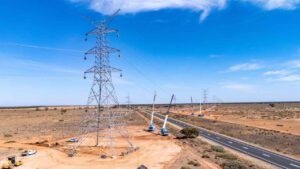Australia’s Climate Change Authority has damned the Abbott government’s efforts on climate change, saying its “spearhead” policy, the Emissions Reduction Fund, was unlikely to deliver even the minimum 5 per cent cuts for Australia without help from complementary mechanisms like the RET.
“On the basis of its current configuration and funding …the Authority considers it unlikely the ERF would deliver even the minimum 5 per cent target without significant complementary action, such as purchases of appropriate international permits and the maintenance of a robust RET,” the CCA says in a report released on Monday.
The report – which coincides with the PM’s appointment of yet another climate denier, this time to fill the role of parliamentary secretary to the Coalition’s environment minister – reasserts the Authority’s view that effective policy response to climate change requires both a broad community consensus that it poses real risks and “a well-stocked toolbox” to tap any and all opportunities to reduce emissions.

“Neither exists today,” says the report. “The earlier broad political consensus has ruptured in recent years, and no early repair is in prospect. And the tool box is feeling less weighty, with the removal of the carbon pricing mechanism, an unproven ERF, and an uncertain outlook for the RET.
The release of the damning report also coincides with a remarkable about face on carbon pricing from Canadian PM Stephen Harper – a former climate ally of Abbott’s – who said this week he was open to introducing such a policy nation-wide.
In a report accompanying the CCA’s second review of the Renewable Energy Target, the Authority is particularly critical of the Coalition’s decision to replace the former government’s Carbon Farming Initiative (CFI) – or spin it out into the ERF.
The CFI was introduced in 2011 to complement the carbon pricing mechanism, by seeking out opportunities to reduce greenhouse gas emissions in sectors including agriculture, waste management and land use and forestry.
In a previous review of the CFI, the Authority said the scheme performed well, achieving real GHG emissions reductions equivalent to around 10Mt CO2 over four years, with about 60 per cent coming from landfill and waste treatment projects, and a further 30 per cent from projects that avoided deforestation.
According to the CCA, the replacement of the smaller-scale Carbon Farming Initiative with the much more ambitious ERF – which covers all sectors of the economy – introduces much greater risk of unintended, ineffective and costly consequences.
“The big difference between the CFI and the ERF which replaced it is the much greater scale of the latter – and the much greater consequences of the risks that the scheme might not only miss some real opportunities to reduce emissions but also (and perhaps more worryingly) result in large payments for reductions that would have occurred anyway,” says the report.
“This will be a constant challenge for the scheme’s administrators,” the CCA says.
The CCA, the independent expert advisory panel the Coalition has been working hard to abolish, decided to proceed with its mandated review of Australia’s renewable energy target in October, after securing the promise of protection in the Senate from the Palmer United Party.
In its first review of the target in 2012, the CCA found no major changes were required. This advice was ignored by the Abbott government, however, which decided to conduct a review of its own, headed up by climate denier Dick Warburton.
In its report today, the CCA makes two recommendations regarding the ERF, which, it notes, considering the repeal of the carbon pricing mechanism, has become the spearhead of the Abbott government’s climate change policy.
The first is the suggestion that enhanced ‘additionality’ tests be considered in respect of individual projects that would generate a large volume of credits (and therefore receive a large payment) under the scheme.
The second is that the ongoing appropriateness of the ERF for achieving emissions reductions in particular situations be subjected to independent and periodic review.







